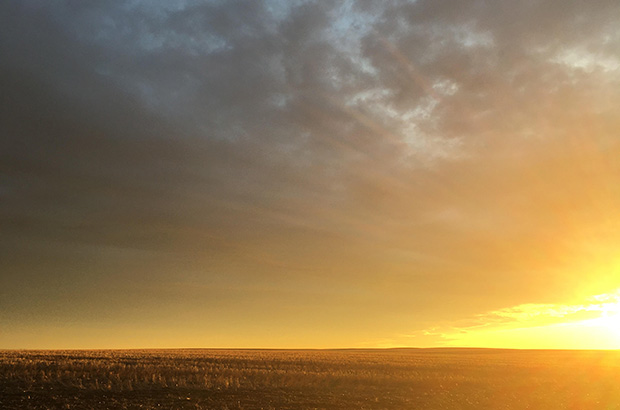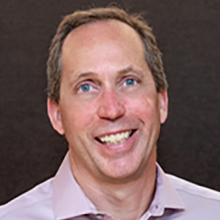As I head off for a sabbatical this summer, I wanted to share with you some thoughts on climate action in the Pacific Northwest and beyond.
First: it’s been an incredible past few months of progress. At the end of April, the Washington State Legislature passed a suite of climate measures that my favorite climate writer, David Roberts, called “the nation's most ambitious climate policy.” These bold new climate laws include a Clean Fuel Standard and the Climate Commitment Act; the Legislature also passed the Healthy Environment for All (HEAL) Act, defining environmental justice in state law and centering those most affected by pollution as Washington transitions to a clean energy economy.
Then to not be beat, just weeks ago the Oregon Legislature passed one of if not the most ambitious 100% clean electricity standards in the nation, putting Oregon on a path to a completely clean grid. New clean energy investments will involve and benefit communities most impacted by pollution, and all projects will follow high labor standards.
Simply put, the Pacific Northwest now has one of the nation’s best and most comprehensive clean energy policy and investment programs, one that not only cuts carbon but also prioritizes helping Black, Indigenous, and other communities of color most impacted by global warming, and creates good paying jobs right here in our great states of Washington and Oregon.
This is worthy of celebration, and is the result of years, really decades of hard work by Climate Solutions and a very long list of incredible partners and legislative leaders.
And yet.
We also are all too aware of what else just happened in the Pacific Northwest. A globally significant heat wave that scientists attribute to climate change has killed nearly 800 people in the region, devastated farmworkers, decimated shellfish and the workers and businesses that depend on them, and is a harbinger of what is to come unless we continue to act with urgency here in the region and across the globe. It’s essential to remember that communities of color are the ‘first and worst’ hurt by climate change, and have a lower share of responsibility for carbon emissions, as we lean into clean energy investments and continue to accelerate equitable climate solutions that create good paying jobs.
So, when I look at the lessons of these past few months that included historic climate policy progress and crushing climate impacts at just the very start of the summer, it is clear. We are facing an urgent threat that requires immediate action on a large scale. The Pacific Northwest is well positioned—perhaps better than any other region in the nation—to make good on the promise of the powerful vision of cutting carbon, addressing historical and ongoing inequities, and growing good jobs to serve as a model that has an impact far beyond our borders. Rather than resting on the laurels of the many recent wins, we must spend the next three to four years doubling down in our region, working even harder to Make it Real.
This is our time.
Why is the Pacific Northwest so well positioned to keep leading? The list of reasons is long, but it starts with a few key ingredients. We have some of the best policies in the nation already on the books. Public and private capital will be pouring into the region for climate-related projects as a result of bills like the Climate Commitment Act in Washington, clean fuel standards aligning Washington and Oregon with B.C. and California, and the likely passage of some form of Biden’s American Jobs Act (perhaps the most significant climate bill ever if passed in anything close to its current form). Both of our states enjoy Democratic trifectas (an unfortunate prerequisite for progress on climate in this day and age) and governors wanting to lead; a relatively well-built out ecosystem of nonprofit organizations, grasstops leaders, local elected leaders, and a strong business community increasingly interested in climate. Northwest communities fought and won a decade-long campaign to stop coal exports in the Pacific Northwest. We can keep going, moving from the power of stopping big things to transforming solutions at scale.
Our region is entering a new era. I think it is important to recognize that we are moving into a new era, building on a foundation of success. While we still have more work to do to pass new policies, most especially in the buildings sector, we have won a lot of key policy victories. While the focus needs to remain to some degree in the policymaking forum of the state legislatures, we must also move into new areas.
Where do we need to focus moving forward? Our challenges ahead will include monitoring the implementation of wins through the regulatory and utility forums; figuring out how to make sure that the massive public investments are spent well; and fighting every day to spread the story that strong action on climate makes our lives better through cleaner air, and more and better jobs. We will do our part to ensure that our states invest in communities hardest hit by climate change and other inequities; we will continue to build coalitions grounded in equity with diverse partners. State governments must work with business to site solutions in the Northwest, from solar and wind farms to manufacturing batteries. We need to strengthen our electrical grid and other infrastructure, leveraging increasing commitments from the business community to accelerate progress. We must grow support for the clean energy transition among rural communities.
Climate Solutions’ core strategies remain the same: advocating for bold public policies that cut carbon emissions rapidly and on a large scale; growing good paying jobs; working towards achieving racial and social equity; building powerful partnerships; expanding the movement; and building ongoing public support by communicating the story that large-scale solutions are more than simply possible, they are within our reach.
We will also adapt to the new era that we are entering.
We have begun work on an updated strategic plan, and when I return in the Fall we will lean hard into learning the lessons of the past and freshening our approach to adapt to this exciting, and urgent, new era that we are entering.
We’ve all been through quite a year and as we come out of the worst of the COVID-19 pandemic, I think of Savitha Reddy Pathi, our Deputy Director, whose reflections on this past year were featured in a recent Seattle Times column by Naomi Ishisaka:
What this last year and a half of this pandemic has hopefully taught us is how interconnected we really are… and that we are all responsible for the common good of each other. We all need to be in this movement together to really be able to make more progress.
I hope that you have a great summer. A few things you can do right now:
- Keep talking about climate with your friends, family, peers (here’s our tip sheet for climate conversations).Talking about cimate is totally worth it—social research shows that the more folks hear about a problem, the more likely they are to take action to address it.
- Ask Congress to make sure that infrastructure legislation includes strong climate protections and a clean energy plan—and to protect vulnerable workers by supporting the creation of national heat stress standards.
- Please sign up here to get our text alerts—a few messages a month, highlight urgent opportunities to act on climate.
- Share good news on social media: we share clean energy and climate news on Facebook and Twitter, so connect with us there too.





